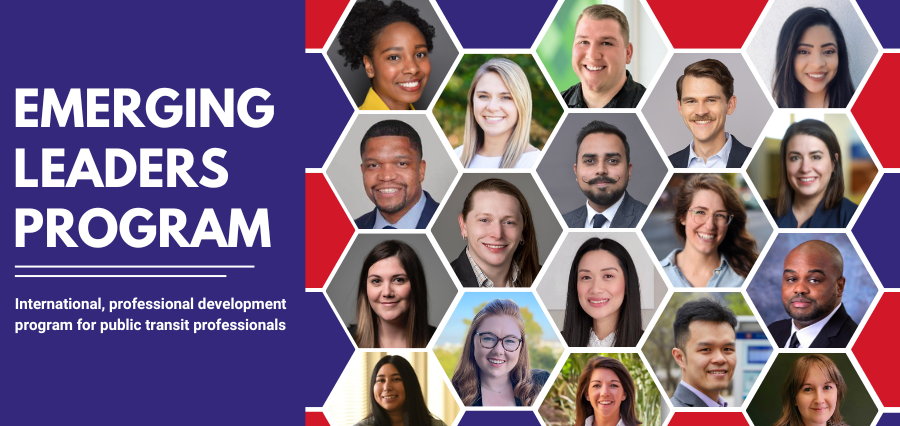Mentor Program Overview
The mentor program is the hallmark of APTA’s Emerging Leaders Program. Program participants will benefit from the knowledge and insights of both national and local mentors. The national mentors provide their expertise and speak to a broad range of transit issues at a national level. Local mentors are integral in helping participants better understand their organizations and address local work and career development issues.
National Mentors
Program participants are matched with experienced professionals outside of their organizations, who can help them 1) learn the “bigger picture” of the public transportation industry, 2) learn about practices and experiences at other transit agencies and organizations, and 3) create a career development plan including short- and long-term career goals, next steps, and strategies to advance their careers in transit.
National mentors and mentees will work in small groups, where three mentors are matched with 4-5 mentees. National mentors and mentees are matched based on geographies/time zones and the mentees’ areas of interest where possible. The mentor groups hold monthly discussions on various transit and career development topics from July through April of the program year. Most meetings are held via videoconference, with in-person meetings encouraged when feasible.
Local Mentors
At the start of the program year, participants are tasked to identify a local mentor from within their organization; participants from small organizations may elect to work with a local mentor at another organization in their local community. The local mentors play an invaluable role to help participants gain a deeper understanding of their organization’s business culture, policies, and practices and identify skills and experiences they need to earn promotional opportunities. Local mentors also serve as a sounding board for mentees to discuss ongoing projects or issues that need problem solving.
The local mentor and mentee will meet monthly to navigate internal work and career development issues. In-person meetings are encouraged whenever possible. Rather than have the participant’s direct supervisor serve as the local mentor, they are encouraged to identify a local mentor who can provide knowledge from other departments or share expertise in areas of interest to the participant. The participant is encouraged to work with their local mentor to develop an action plan, which may be based on a SWOT (Strengths, Weaknesses, Opportunities, and Threats) Analysis and defines short-term SMART (Specific, Measurable, Attainable, Relevant, and Time-based) career goals.




